- Home
- P. T. Deutermann
The Last Man
The Last Man Read online
Given the tectonic power shifts taking place in the Near East these days, this book is dedicated to the fond hope that Israel will survive, both as an island of modernity in a sea of resurgent medievalism and as an outpost of democracy in an increasingly barbaric world.
CONTENTS
Title Page
Dedication
Acknowledgments
Epigraph
Part I: The Mountain Fortress of Masada in Judaea, A.D. 73
Part II: Tel Aviv, Israel
Chapter 1
Chapter 2
Chapter 3
Chapter 4
Chapter 5
Chapter 6
Chapter 7
Chapter 8
Chapter 9
Chapter 10
Chapter 11
Chapter 12
Chapter 13
Chapter 14
Chapter 15
Chapter 16
Chapter 17
Chapter 18
Chapter 19
Chapter 20
Chapter 21
Chapter 22
Chapter 23
Chapter 24
Chapter 25
Chapter 26
Chapter 27
Chapter 28
Chapter 29
Chapter 30
Chapter 31
Chapter 32
Chapter 33
Chapter 34
Chapter 35
Chapter 36
Chapter 37
Also by P. T. Deutermann
About the Author
Copyright
ACKNOWLEDGMENTS
I want to thank my editor, George Witte, for letting me do this one after so many years, and also my copy editor, India Cooper, for doing her usual excellent job with the manuscript. Rick Cavey gave me invaluable advice on the diving technicalities; any errors there, whether intentional or not, are of my own making. The Ministry of Tourism in Israel was very helpful. Finally, I want to acknowledge the power of the Masada site, itself. There’s nothing quite like it in the world.
THE VISION OF THE DRY BONES
The hand of the Lord came upon me. He took me out by the spirit of the Lord and set me down in the valley. It was full of bones. He led me all around them; there were very many of them spread over the valley, and they were very dry … (Ezekiel 37: 1–2)
From a scroll fragment found on the fortress of Masada during the Yigael Yadin archaeological expedition
Part I
The Mountain Fortress of Masada in Judaea, A.D. 73
Judah scrambled across the earthen floor of the watch-room as the ceiling fell in, barely staying ahead of the tumble of dust, timbers, and royal plaster as he rolled into a corner, covering his face against the flying debris. A battered round rock about a foot in diameter, fired from a Roman ballista, smashed a final massive dent into the end-wall masonry before rolling to a stop three feet away. Through the wreckage of the ceiling, Judah could now see the sheets of fire consuming the tops of the western ramparts. He barely had time to collect himself before another stone came hissing across the night sky, passing invisibly over the ruined timbers of the watch-room to batter down a building somewhere beyond him in the darkness.
Damn them and their machines, he thought. Their machines and their implacable Roman power. A distant crash marked the impact of yet another ballista stone, hurled across the night sky by the catapult in the burned-out siege tower. Ever since the treacherous desert wind had turned on them, firing the wooden ramparts overlooking the siege ramp, the Zealots’ fate had been sealed. By dawn the casemate walls would have burned through and the howling hordes of the Legio X Fretensis would spill in like a swarm of armored beetles. Even now, at the third hour, the ominous rumble of kettledrums and the cheering roars from the Roman formations gathering below echoed in waves across the desert darkness. It was the same sound the mob made in the hippodrome at Caesarea during the procurator’s games.
I am Judah, Sicarius. I shall be the Last Man, he thought, as he tried to make himself small in his corner of the watch-room. He had drawn the final tile, the tenth lot, and with it the horrific responsibility to finish it. The room shook as another ballista round careened across the open ground outside and ricocheted off a nearby storeroom wall. A woman shrieked, a pathetically human sound amid the dull thudding of collapsing masonry. Had she cried out from fear of the stones, or from seeing her husband coming for the family with a knife?
Not long now, he thought, rolling over on his side and shifting his own glinting dagger from his left hand to his right. Not long at all. The smell of burning timbers was suddenly strong as the streaming, treacherous wind veered across the top of Herod’s fortress, pushing acrid smoke through the holes in the building, stinging his eyes to sudden tears. The tears ambushed his memory. He had lived a very long time. It had been almost forty years since those heady days in Galilee, when the teenagers who would become Sicarii formed their first cell in the mountains. Now he was the last of them, the last man in more ways than one. The Daggermen were a bloody memory now, their bones scattered over Galilee and beyond, along with the bones of the thousands slaughtered in the broken streets of Jerusalem. Death to Rome, indeed. He shivered again, imagining he could hear his own bones rattle. The Romans were about to show them the final cost of their supremely naive rebellion.
Another stone rocked the walls of the watch-room. He inspected the dagger again, his badge of honor as a Sicarius, the Roman word for Daggerman. Judah, son of Joseph, later outcast son of Kerioth. One of the very first Galileans to take up the long knife against Romans and other undesirables. Old Judah Sicarius. The oldest Kanna’i, or Zealot, as the people called them. Sixty-one seasons he had lived. Gray now in beard, long in tooth, but still tough as an Egyptian chariot harness. Without a doubt, he had been the oldest warrior on this mountain. The last of the Kanna’im, too, after the judgment of the ostraca, the fateful tiles, cast earlier in the royal precincts. I shall be the Last Man!
A smaller projectile crashed down somewhere up along the casemate walls, and this time the prolonged screaming of a mortally injured child rent the night air. Judah winced but did not move. On this night of nights, one way was as good as another to die. In a little while he would have to go out there, dodging across the deadly open spaces, within sight of Roman archers in the fighting tops of the charred siege tower. He would be a scurrying bundle of old rags under the deadly gaze of their catapult, one more rebel to nail with their iron quarrels if they could manage the shot. Nevertheless, this old Jew had a final mission. If he could just make it across the open ground, glinting dagger in hand, he was honor-bound to carry out Eleazar’s final, terrible orders. By so doing, would he finally make amends for what he had done forty years ago? Was this final, bloody mission the cost of his redemption? Could it be?
He drew his tattered cloak closer as he thought about their glorious leader, Eleazar ben Jair. Kanna’i extraordinary, a stunningly effective demagogue right to the very end. It had been ben Jair’s idea to fire the casemate timbers in order to destroy the siege tower, and it had worked, too. For a while. He recalled with relish the screams of the Romans as the lower hide shields caught fire, and then the lashings and the very timbers of the eighty-foot-high tower, crouched atop the blood-soaked siege ramp. He had watched with the other Zealots, secreted like rats in their burrows along the western wall, firing arrows into the blaze each time a roasting Roman poked his head out of the smoke, screaming desperately for help from the legionaries behind the tower.
Then, just after nightfall, with the tower’s massive timbers only half consumed, the fateful desert wind, the very breath of their own vengeful God, had turned on the defending Jews. It had veered into the north and then swept back onto the western wall, away from
the tower. The Zealots, who had cushioned the outer face of the wall with sand and timbers to defeat the tower’s battering ram, could only watch in horror as the capricious flames began to burn the wall timbers, sealing Masada’s fate. The Romans had been able to withdraw the siege tower to just beyond the flame front and put out the fires in its fighting tops, but the great battering ram and even the tower were superfluous now because, with the makeshift wooden walls ablaze on the mountain’s rim, the fortress would be totally exposed by dawn.
Ben Jair’s coal black eyes in the guttering lamplight had revealed the extent of their calamity. “The core of the walls is aflame,” he croaked, his voice hoarse from the smoke. “They have finished the ramp, and by first light the maniples of the Tenth Legion, soldiers in their thousands, will break through. By the Lord God, we tried, we surely tried, but the accursed wind…”
Ben Jair had paused to catch his heaving breath and to drink some water. “So now,” he continued, “now that the fateful hour is at hand we must choose. We are the final warriors of the Jewish race. God’s Temple is demolished; Jerusalem is a defiled, corpse-ridden ruin. Our lands, our villages, our hearths and homes, gone, all gone. Our kinsmen’s bones bake in the desert. The Romans have hunted down every last patriot and slaughtered them all like leprous dogs. They even buried the old hermits alive in their caves at Qumran and then posted guards until the smell told them it was finished. They leveled Machaerus and killed everyone who surrendered, and now they have laid siege to this final fortress, here at the bottom of the world, for nearly three years. At dawn, it will be finished here as well. At third cockcrow, the Roman juggernaut will march up the ramp to kill and rape and torture, and any survivors here will envy the dead.”
Ben Jair had stared at the hollow-eyed warriors standing around the main audience room in Herod’s palace, his gaze hot, eyes blazing like a demon’s as he seduced them one last time with all the hypnotic urgency of a prophet. Always the posturer, he had gathered himself in front of them, coiling his dirty robes like a Levite, chanting his final exhortation.
“We long ago, my generous friends, resolved never to be servants to the Romans, nor to any other than to God himself. The time is now come that obliges us to make that resolution true in practice. We were the very first that revolted from them, and we are the last that fight against them. I cannot but esteem it as a favor that God hath granted us that it is still in our power to die bravely and in a state of freedom. It is very plain that this place shall be taken in a day’s time. We are openly deprived by God himself of all hope of deliverance. That fire which was driven upon our enemies did not, of its own accord, turn back upon the wall which we had built. This was the effect of God’s anger against us, for our manifold sins which we have been guilty of in a most insolent and extravagant manner with regard to our own countrymen, the punishments of which let us not receive from the Romans, but from God himself, executed by our own hands.
“Let our wives die before they are abused, and our children before they have tasted of slavery, and after we have slain them, let us bestow that glorious benefit upon one another mutually and preserve ourselves in freedom as an excellent funeral monument for us. But first let us destroy the fortress and our money by fire, and spare nothing but our provisions, that they may be a testimonial when we are dead that we were not subdued for want of necessaries, but that we have preferred death before slavery.”
Judah’s face twisted in a grimace as a ballista stone cracked the steps by the doorway. He wiped some dust off his face and realized that it was getting cold. The final hours before dawn were always the coldest. He waited and listened. The artillery bombardment seemed to be slacking off.
It had been an amazing exhortation, and, equally amazing, the surviving warriors had done exactly what ben Jair proposed. Men went among their families, gathered most of them into Herod’s palace, shawled their faces and heads, and then killed them all. Then they reassembled and drew lots to choose ten among them “to bestow that glorious benefit” on themselves. The second slaughter completed, the bloodied ten had assembled one last time to again draw lots. Judah Sicarius had drawn the fateful tile. He had withdrawn to the southern end of the fortress to wait until the last hour before dawn, so that the remaining nine could fulfill their compact with honor. If they failed to do that, well … He ran his fingers along the well-oiled blade of his own dagger.
It had been an amazing exhortation. Also a glorious, masterful lie, of course. Yes, they would die, and willingly. They were Kanna’im. Zealots. Fanatics. Yet they chose death not just to deprive the Roman beast of its final triumph. This self-inflicted immolation was for something far more important than that. Over and above a final, glorious defiance, their mass suicide would also protect the holy relics hidden in the heart of the mountain. The holy things spirited out of the Temple on that last horrific night, when the combined legions of Titus and Vespasian had run amok through ankle-deep gore in the streets of Jerusalem, their sandals splashing blood onto the very walls in a manner reminiscent of the times of Moses and the plagues in Egypt.
He peered through a hole in the building’s walls again. The flames inside the western palace and along the walls were unremitting. It was time to move, time to begin the hunt through the battered ruins atop the mountain. The final ten had included ben Jair. Judah, as the Last Man, must now ensure that all had died before he took his own life. Especially ben Jair himself. He could make a fine speech, ben Jair, and he had been a stalwart commander and lethal warrior, but Judah knew the man of old. He did not think Eleazar had the courage to turn his dagger upon himself.
It was strangely quiet now across the open ground outside. He shook his head in wonder at all that had happened in these past six years, and the dreadful duty he faced. Once he had confirmed that all the defenders were dead, he would be the last Jew alive of all the uncounted thousands of warriors flattened beneath the Roman yoke during the civil war. They would never find him, though. He would be with the treasure, a treasure to which he, the last Daggerman, the despised Judaean, the last of the Kanna’im, would add one final, supremely ironic object before honoring the fate decreed by the tiles.
I shall be the Last Man.
The wind shifted yet again, and the smoke suddenly surged thick in the ruined room. He could not breathe. It was definitely time. He hefted the long dagger with a deep sigh. In a way, he would have it easy. He had had no wife or children to slaughter this dark night. All that was left was for him to go through the surviving buildings in search of any stragglers and, especially the body of ben Jair. Coughing in the smoke, he lunged for the door, pausing only to get a breath before launching himself into what was now indisputably the Roman night. From the plains stretching below the sheer red walls of the mountain he could hear the soldiers’ massed cheers swelling over the crackle of flames and the keening of the bitter desert wind. You bastards won’t be cheering on the morrow, he thought grimly as he bolted from the smoke-filled building. We have rebuffed your best efforts for almost three years, and now, in death, we shall defy you.
I shall be the Last Man!
Judah barely avoided the slashing bolt from a catapult as he rolled into the rubbled floor of the mikveh, the ceremonial purification baths near the western palace. Roman bastards! He peered back through a crack in the wall. Above the billowing flames, the charred tops of the siege tower, hulking just below the rim of the mountain, harbored a dozen or so snipers who were probably calling targets for the ballista artillery catapult farther down the ramp. The hard rock plain that was the top of the mountain was totally illuminated now by the burning western walls, and his mad dash across the open space between the palace watch-room and the mikveh had apparently been spotted. He winced as another bolt came ricocheting through the doorway and skittered around the cluttered anteroom. The demons knew he was in here, he thought. There were weapons stacked in one corner. He longed to return the fire, although the tower was probably out of range now. Besides, he had things to do.
/> He looked around. The mikveh consisted of two buildings, with the purifying baths, now empty and dry, between them. The first room was for undressing and ritual cleansing. It had remained relatively intact since the bombardment, except that one glancing hit on the roof had covered the mosaics of the floor with bits of mortar and broken roof tiles. Three families had taken refuge in the small building directly across from the purification pools after their quarters had been overtaken by the fire along the western walls. Most of the Zealots’ families had lived inside the casemate walls themselves during the siege, existing in tiny rooms that allowed them to defend against climbers and stay out of range of the Roman snipers on the other side of the deep ravine called Wadi Masada. If they had not sought shelter in the palace, and the killing had been done, he should find bodies in the building on the other side of the empty pools.
He peered out the doorway, scanning the terraces, then drew back as another ballista stone came hissing directly overhead. It missed the pool building roof by a few feet and shattered in the darkness against the hardpan rock of the mountain. He bolted across the pool terrace and dived into the anteroom of the other bathhouse building as a bolt from a catapult whined behind his back. He stood up, brushed off his robe, and drew the long iron dagger. He had no need to test its edge; a Sicarius with a dull weapon was a contradiction in terms.
There was a ragged cloth curtain hanging between the anteroom and the chamber inside. He paused, steeling himself. It was one thing to accede to mass suicide while in thrall to Eleazar’s rhetoric. It was another thing altogether to kill people he knew, men and women and, yes, God cleanse his soul, children, alongside whom he had lived, fought, and prayed for nearly three years. His heart pounding, he took a deep breath and touched the curtain with the point of the dagger. Then he realized it was heavy—and wet. He let go of it and stared down at his hand in the dim light, frowning at the dark stain. Then it hit him: The curtain was soaked with blood. He took another deep breath and pushed the curtain aside. What he saw took his breath away.

 The Nugget
The Nugget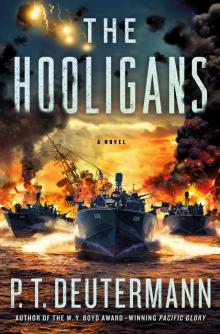 The Hooligans
The Hooligans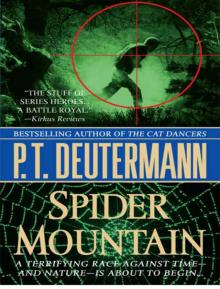 SPIDER MOUNTAIN
SPIDER MOUNTAIN![Cold Frame [retail] Read online](http://i1.bookreadfree.com/i/03/19/cold_frame_retail_preview.jpg) Cold Frame [retail]
Cold Frame [retail] Sweepers
Sweepers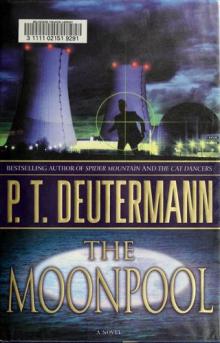 Cam - 03 - The Moonpool
Cam - 03 - The Moonpool Trial by Fire
Trial by Fire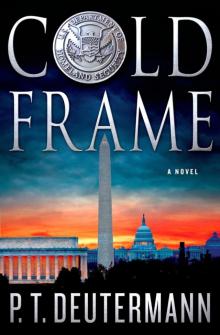 Cold Frame
Cold Frame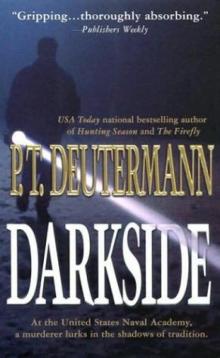 Darkside
Darkside Cam - 04 - Nightwalkers
Cam - 04 - Nightwalkers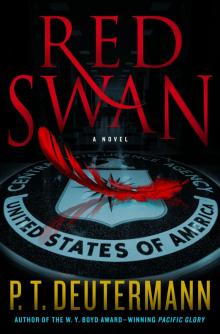 Red Swan
Red Swan The Commodore
The Commodore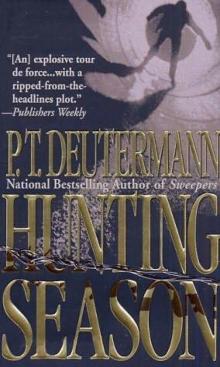 Hunting Season
Hunting Season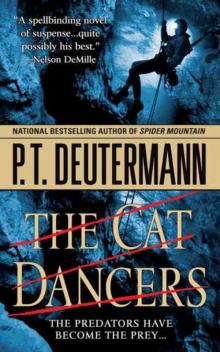 The Cat Dancers
The Cat Dancers Scorpion in the Sea
Scorpion in the Sea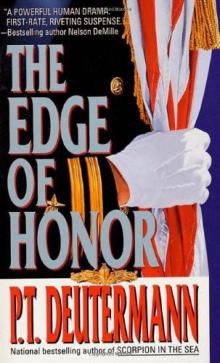 The Edge of Honor
The Edge of Honor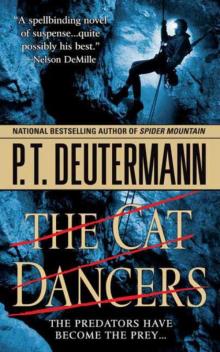 The Cat Dancers cr-1
The Cat Dancers cr-1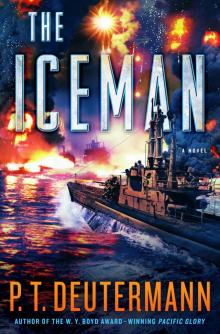 The Iceman
The Iceman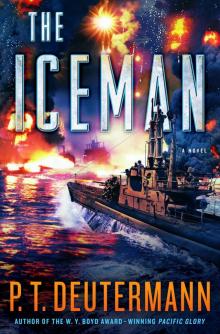 The Iceman_A Novel
The Iceman_A Novel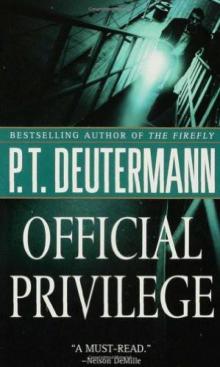 Official Privilege
Official Privilege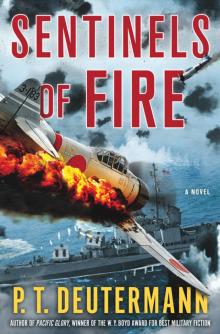 Sentinels of Fire
Sentinels of Fire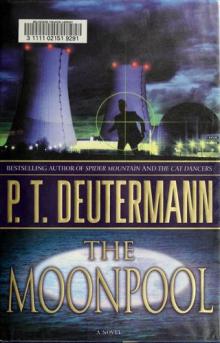 The Moonpool cr-3
The Moonpool cr-3 Nightwalkers cr-4
Nightwalkers cr-4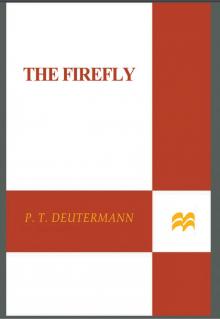 The Firefly
The Firefly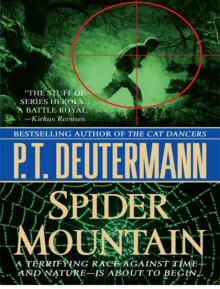 Spider mountain cr-2
Spider mountain cr-2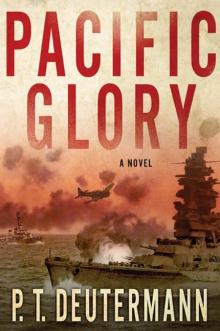 Pacific Glory
Pacific Glory The Last Man
The Last Man